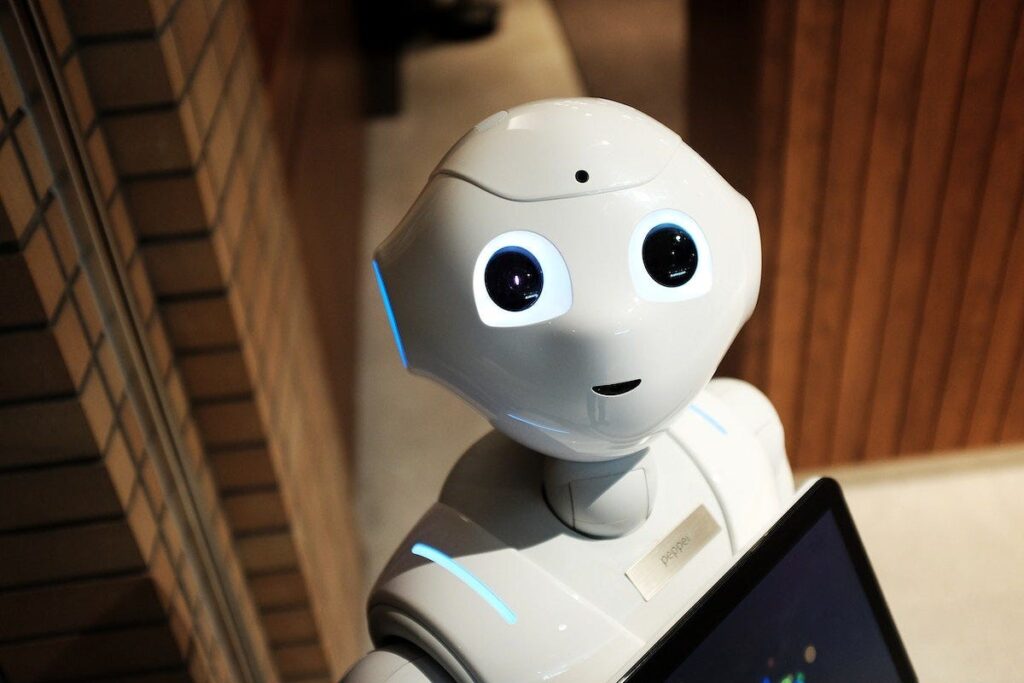The Transformative Force and Its Impact
Artificial Intelligence (AI) stands as one of the most influential and transformative technologies of our era.

Artificial Intelligence Its ability to mimic cognitive functions, learn from data, and make decisions has brought about significant changes across various industries. This article delves into the intricacies of artificial intelligence and explores its profound impact on society, businesses, and daily life.
What is Artificial Intelligence?
At its core, Artificial Intelligence refers to the development of computer systems capable of performing tasks that typically require human intelligence. These tasks encompass a broad spectrum, including problem-solving, speech recognition, learning, and decision-making. AI systems are designed to adapt and improve their performance over time, a feature often associated with machine learning.
Artificial Intelligence (AI) encompasses the emulation of human-like intelligence in machines, enabling them to think and operate in a manner similar to humans. AI is endowed with the capacity to acquire knowledge from experience, make informed decisions, and execute tasks traditionally associated with human intelligence.
Narrow AI (Weak AI)
This type of AI is designed and trained for a specific task or a narrow range of tasks. It excels in performing well-defined operations but lacks the ability to generalize its knowledge or skills to other domains. Examples include virtual personal assistants, recommendation systems, and speech recognition applications.
General AI (Strong AI)
General AI, in contrast, possesses the ability to understand, learn, and apply knowledge across a wide range of tasks—simulating human-like cognitive abilities. This form of AI, often depicted in science fiction, has the potential for reasoning, problem-solving, and adapting to various situations. However, achieving true General AI remains a complex and evolving challenge.
AI holds the promise of transforming education by introducing tailored and customized teaching methods, ultimately enhancing learning results. By scrutinizing student data, AI can offer instantaneous feedback to both educators and learners, enabling them to adapt their teaching and learning strategies accordingly. A significant advantage of incorporating AI in education lies in its capacity to deliver personalized and tailored instruction. By evaluating student data, AI can craft individualized learning plans, considering each student’s strengths, weaknesses, and preferred learning styles. This personalized approach has the potential to significantly elevate both learning outcomes and student engagement. The impact of AI in education is vast, poised to reshape the landscape of degree and diploma programs in the years to come. AI-powered technologies not only furnish students with real-time feedback but also assist them in staying on course with their studies, fostering a more individualized and captivating learning experience.

Impact on Industries

- AI has revolutionized medical diagnosis and treatment planning. Machine learning algorithms analyze vast datasets to identify patterns and provide insights for disease detection, drug discovery, and personalized treatment plans.
- In the financial sector, AI plays a crucial role in fraud detection, algorithmic trading, and customer service. Predictive analytics and machine learning models help optimize investment strategies and manage risks more effectively.
- AI has transformed the education landscape by providing personalized learning experiences. Intelligent tutoring systems adapt to individual student needs, enhancing engagement and educational outcomes.
“The potential of AI in education is enormous”
Societal Impact

- While AI has automated routine and repetitive tasks, it has also led to concerns about job displacement. However, it has created new job opportunities in AI development, maintenance, and ethical governance.
- The use of AI raises ethical questions related to bias in algorithms, privacy concerns, and accountability for AI-driven decisions. Striking a balance between innovation and ethical considerations remains a crucial aspect of AI development.
Everyday Applications
- Virtual assistants like Siri, Alexa, and Google Assistant utilize natural language processing to understand and respond to user queries, simplifying tasks and providing convenience.
- AI algorithms power recommendation systems on platforms like Netflix and Amazon, analyzing user preferences to suggest personalized content or products.
“AI has the potential to improve our lives in countless ways”
As AI continues to evolve, the possibilities are boundless. Advanced applications such as autonomous vehicles, robotics, and further breakthroughs in healthcare are on the horizon. However, addressing ethical concerns, ensuring transparency, and fostering responsible AI development are essential for a harmonious integration of AI into society.
Artificial Intelligence has transcended its status as a futuristic concept to become an integral part of our daily lives. Its impact extends across industries, shaping how we work, learn, and interact. While the benefits are abundant, a thoughtful and ethical approach is crucial to harnessing the full potential of AI while mitigating potential risks. As we navigate this era of technological advancement, understanding and embracing the transformative force of Artificial Intelligence is key to shaping a future where innovation coexists with ethical considerations.
